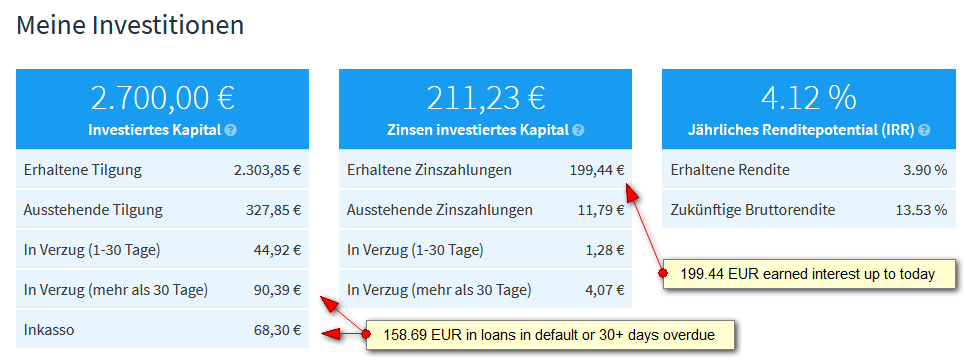![]() UK p2p lending Marketplace Funding Circle announced today that from September 18th, there will be an important change to how investors can invest on the marketplace. From that date Funding Circle will withdraw the option to manually choose which businesses to lend to and which loan parts to sell. Instead Funding Circle says it will launch a significantly improved and upgraded version of existing Autobid and Autosell lending tools.
UK p2p lending Marketplace Funding Circle announced today that from September 18th, there will be an important change to how investors can invest on the marketplace. From that date Funding Circle will withdraw the option to manually choose which businesses to lend to and which loan parts to sell. Instead Funding Circle says it will launch a significantly improved and upgraded version of existing Autobid and Autosell lending tools.
Investors will be able to choose one of two new lending options based on their personal preference. Both options will be available as a Funding Circle ISA, which Funding Circle intends to launch later this tax year.
- Balanced: you will automatically lend to the full range of creditworthy businesses (A+ to E), aiming to achieve an attractive, stable return. This will allow you to build a balanced portfolio similar to the makeup of small businesses in the UK today. The projected return is estimated to be 7.5% per year after fees and bad debt.
- Conservative: you will focus on lending to businesses that have been assessed as lower risk (initially A+/A) but with a lower projected return. The projected return is estimated to be 4.8% per year after fees and bad debt.
Funding Circle gives the following reasons for stopping manual lending:
We launched Funding Circle in 2010 with the option for investors to either manually choose which businesses to lend to, or use our Autobid tool to build a portfolio based on their lending preferences. While many investors have enjoyed manually choosing loans, there are some drawbacks to it:
- Many investors do not currently benefit from lending to all types of businesses: currently some investors can find it difficult to access D and E loans, which are some of the most popular. We want to ensure investors lending through Funding Circle have an equal chance of accessing all loans, and earn the best possible return.
- It can mean your lending is not spread evenly across lots of businesses: currently many investors who manually choose loans are not fully diversified and are at risk of having a negative lending experience. We want to ensure investors spread their lending across lots of different businesses as this is the best way to earn a stable return.
- It can be confusing for investors: many investors tell us they prefer a simpler, easy-to-use lending experience: 73% of new investors who join Funding Circle choose Autobid, and 80% of Funding Circle investors* say simplicity of lending is important to them.
* Independently surveyed by Cambridge University
 Funding Circle will also make changes to the interest rates effective August 30th. Funding Circle says ‘When reviewing rates we take a number of factors into account, including macroeconomic trends, the expected mix of risk bands of borrowers, expected bad debt rates and wider competition in the market, which continues to be increasingly competitive for lower risk businesses. The new rates will allow you to continue to lend to established, creditworthy small businesses while earning an attractive, stable return.’.
Funding Circle will also make changes to the interest rates effective August 30th. Funding Circle says ‘When reviewing rates we take a number of factors into account, including macroeconomic trends, the expected mix of risk bands of borrowers, expected bad debt rates and wider competition in the market, which continues to be increasingly competitive for lower risk businesses. The new rates will allow you to continue to lend to established, creditworthy small businesses while earning an attractive, stable return.’.
Furthermore Funding Circle has removes sales fees for selling loans, effective today. There will be no more premiums and discounts possible on the secondary market.
Several p2p lending services have made similar moves discontinuing self-selection of loans to invest into and asking investors to use autoinvest options instead usually citing simplicity and ease of use. While this may be true for part of investors it certainly is not true for all of the investors. Especially among most active and vocal investors there are some that like to select loans manually and dislike if that choice is removed (Funding Circle says 73% of new investors use autobid).
Possible as a result of sentiments like that Bondora reintroduced more selection options with their Portfoloio Pro feature, after removing them earlier.


